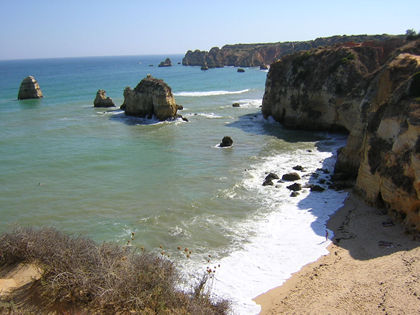J-Dub learns about teachers in Cambodia and is saddened
So I'm in Cambodia right now, finding the best and brightest of the youth in Cambodia. We are expanding our scholarship porgram. It is a wonderful project. Donors from all over the world sponsor over-achieving Cambodian students to go university. The idea is to give the students of today the opportunities to be the future leaders in a country fraught with corruption, ignorance, and poverty.
In the Cambodia of today, the government continually proves untrustworthy in its investment in the education system. Take for instance how the government teachers conduct classes (K-12). Let's start with pay. Each teacher is paid $30 a month for their services, if they are the lucky. The luck factor comes into play depending on the location of the school. If they live close to Phnom Penh then there is a good chance that they will be paid on time, in full. If they live further from the capitol, then there is a good chance that the money will be delayed (the rainy season especially contributes to the lack of accessible transportation) or the money will be short (there is no governmental post office) so there may be 'shipping' charges. Roughly $30 a month isn't much money, even in a developing country.
To compensate for the nominal pay, teachers are forced to charge students for private lessons. This means that during class, the teacher will explain the name of the lesson and state the principle without without giving examples or giving proper explaination. So the students who want to learn more must pay the teachers for private sessions. This is how the teachers supplement their income. However, the problem is that the students who have the money for private lessons pay the teachers directly for high marks and skip the lessons entirely. This means the families with more money pay the teachers for good grades, but the students don't even bother going to the private lessons and fail to grasp the concepts. This goes on, but there is little that anyone can do to surmount the problem because the government would rather the NGOs come in and build schools to save money. And even more dipressing part is that everyone knows that this happens and assums it is like this everywhere.
If that doesn't shock you, listen to this: two years ago the government had a census and found that the 1 million students that entered Secondary School, only 50,000 graduated High School. How about those stellar stats? Yeah, that's a 95% attition rate. . .
So as you begin to understand, the education system needs improvement. I've audited a few of the university classes and they are encouraging. The students are there to learn and in general very committed to improving thier economic and social situation. The quality of education is much better and lessons are explained with pretty well and there is a good amount of discussion. It is with these students that my hope remains.
~ J-dub
In the Cambodia of today, the government continually proves untrustworthy in its investment in the education system. Take for instance how the government teachers conduct classes (K-12). Let's start with pay. Each teacher is paid $30 a month for their services, if they are the lucky. The luck factor comes into play depending on the location of the school. If they live close to Phnom Penh then there is a good chance that they will be paid on time, in full. If they live further from the capitol, then there is a good chance that the money will be delayed (the rainy season especially contributes to the lack of accessible transportation) or the money will be short (there is no governmental post office) so there may be 'shipping' charges. Roughly $30 a month isn't much money, even in a developing country.
To compensate for the nominal pay, teachers are forced to charge students for private lessons. This means that during class, the teacher will explain the name of the lesson and state the principle without without giving examples or giving proper explaination. So the students who want to learn more must pay the teachers for private sessions. This is how the teachers supplement their income. However, the problem is that the students who have the money for private lessons pay the teachers directly for high marks and skip the lessons entirely. This means the families with more money pay the teachers for good grades, but the students don't even bother going to the private lessons and fail to grasp the concepts. This goes on, but there is little that anyone can do to surmount the problem because the government would rather the NGOs come in and build schools to save money. And even more dipressing part is that everyone knows that this happens and assums it is like this everywhere.
If that doesn't shock you, listen to this: two years ago the government had a census and found that the 1 million students that entered Secondary School, only 50,000 graduated High School. How about those stellar stats? Yeah, that's a 95% attition rate. . .
So as you begin to understand, the education system needs improvement. I've audited a few of the university classes and they are encouraging. The students are there to learn and in general very committed to improving thier economic and social situation. The quality of education is much better and lessons are explained with pretty well and there is a good amount of discussion. It is with these students that my hope remains.
~ J-dub


1 Comments:
I think this post really explains how the above post about whitening cream can actually come to pass...
~Bear
Post a Comment
Subscribe to Post Comments [Atom]
<< Home